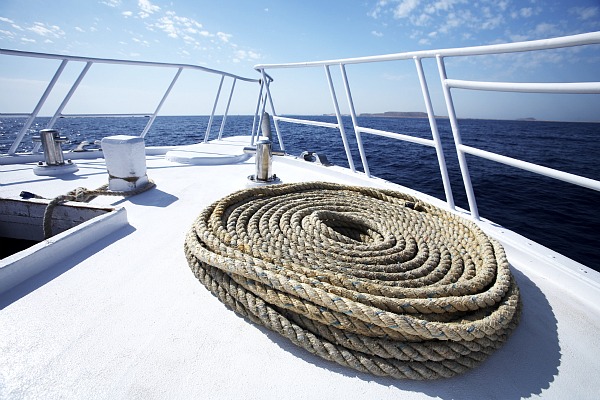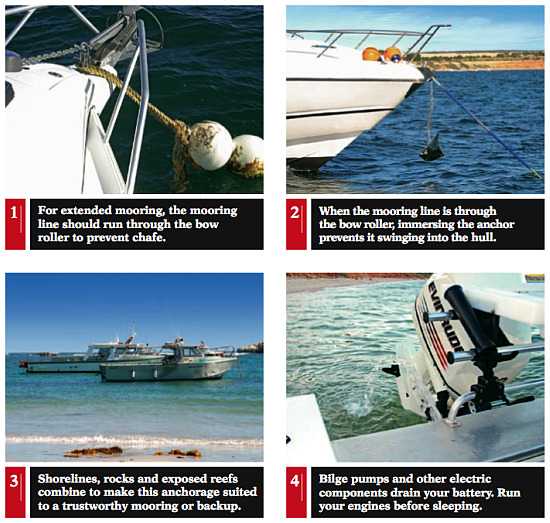Sleeping on a Boat Safely

Safe Sleeping on Board Boats
Reviewed: May, 2009
Author: Adam Robinson
Sleeping aboard can be one of the joys of boating. Water lapping against the hull combined with a gentle rocking can provide a great night’s sleep. On the other hand, captains may suffer nightmares about the vessel dragging and the boat’s safety; skippers sometimes lie half awake all night, keeping one eye on the vessel’s position.
“Prepare and Choose the Night to Snooze”
Boating Article by Modern Boating
A Backup Plan
Often a skipper will know little more about a mooring than does the owner. Even the knowledge that a yacht club regularly maintains a mooring or that it is designed for vessels up to a particular length may do little to reassure a worried skipper on a dark, windy night. Laying anchor is one way a skipper can provide himself with a backup. Bow rollers often need to be cleared of existing anchors and chains anyway before the primary mooring can be secured.

Be Alarmed
Modern electronics can provide some peace of mind while sleeping. Echo sounders are usually equipped with shallow and deep alarms. Left on while sleeping, the alarms will alert crew if the vessel has moved into shallow or deeper waters.
However, a skipper must allow for tidal movements. For instance, a vessel anchoring in four metres of water may move between say two and six metres in the southern latitudes. Setting a shallow and deep alarm to allow for this tidal movement lessens the chance of false alarms but may also result in considerable vessel movement before the alarm sounds. Also, during slow tidal movement or dragging over rough bottom, alarms may come on and off so often that skippers have been known to switch off the device on the presumption that it’s malfunctioning.
This is where GPS comes in. GPS units provide an anchor alarm, designed to alert the crew should the vessel drift beyond a preset distance from the initial position. If you remember to take into account only the expected amount of drift due to environmental conditions, then the GPS can prove to be your most accurate alarm.
Stay in Charge
Electronic devices are a bonus, but you can overdo it. A seagoing mate recounted a recent experience whereby a GPS alarm, sounder alarm and anchor light were left on all night, after several hours of cleaning fish under a deck flood light. Attempts to set a low voltage alarm were met with frustration with a new bit of electronic kit. At dawn, the battery was depleted, displaying around 9V and unable to start the outboard, which required 9.5V.
Low voltage alarms are fitted to some devices. These can be set to just above the minimum you know will start the engine, based on your own experience and on what your engine’s user guide tells you. To maximise battery charge, run your engine for some time immediately before sleep, to ensure any charge depleted from your night- time activities has been replenished. Also, dim the display on any electronic devices you leave running. Then lie down for the best night’s sleep around.


